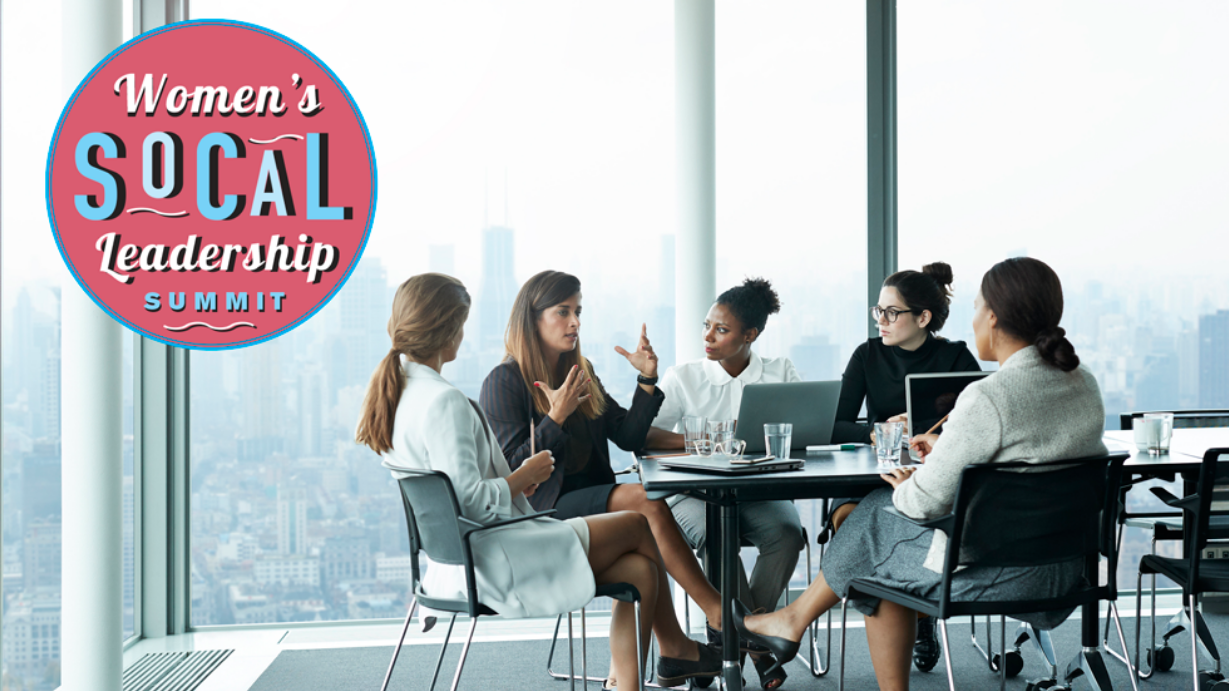Consumers’ attitudes, behaviors and buying habits have changed significantly in multiple ways as a result of COVID-19, and it remains to be seen how many of those changes will reverse back or become the new normal post-pandemic, research and insight specialists said at the recent SoCal Women’s Leadership Summit, presented by Women in Technology Hollywood (WiTH).
Since March, we’ve seen consumers using more digital channels than ever before (some of them to help with issues around isolation), spending more money through e-commerce, shopping at brick-and-mortar stores less and not going to movie theaters or attending live events – all while many of them have been working remotely (or not working at all after losing a job).
Many consumers now have to shop online, including people who never did before, Nicol Turner Lee, senior fellow and director of the Center for Technology Innovation (CTI) at the Brookings Institution, said during the Summit’s Professional Development track breakout session “Research and Insights: Managing the Human and Business Impact of COVID-19.”
Although there was already a growing shift to online shopping before the pandemic, many people still went to stores before the pandemic, she noted.
However, now there is a “critical mass” in the digital economy and there has been increased consumer engagement and shopping online since the pandemic started, she said.
On the other hand, about 18 million people before COVID had no broadband Internet access and “those folks still aren’t engaged” online, she said. So there is a “missed opportunity” to reach those consumers and, as a result, there is going to be some lag in the economy as a result of consumers who can neither shop online nor go to stores, she said.
One challenge that remains is how to reach those consumers, she told viewers, noting her mother “will never go back to a store.”
Although mobile device use has increased during the pandemic, cinemas and other businesses dependent on consumers physically visiting have suffered, she noted.
She predicted the huge shift to online consumption will be permanent. After all, consumers who are especially susceptible to the virus are not going to be comfortable in public spaces without a vaccine, she said.
Some impacted businesses will permanently close, she also predicted, pointing to data indicating about 100,000 small businesses have already closed and will never reopen.
Many companies need to change their business models to survive because digital is here and it’s accelerated significantly now more than ever before, she said.
Meanwhile, data is being collected on individuals as they are doing everything from home now and that is “contributing to the polarization because of our fenced-in ideologies,” what we like, and who we associate with, she went on to say.
Thanks to advanced data capabilities, companies can now figure out how long people are watching content for and what diverse populations want to see and when, she noted.
However, the positives of tech “can also become perils,” she warned. For one thing, it is “important for the entertainment industry to not be driven by algorithmic discrimination and other biases,” she said.
“Going forward, I would love to see the entertainment industry sort of seize this moment too to think about the implications of algorithmic accountability and algorithmic bias in how content is delivered into the homes of families,” she added.
She recalled that, as a 13-15-year-old teenager watching TV, she was lost in the experiences of other people and actors who “gave me a sense of hope of what I can become.” She hoped that will continue to be the case for others, adding: “This is a call to action to the entertainment industry. It’s not just about digital transformation and business services, but it’s what is the story you want to create going forward and I think your story will matter as we … navigate through a lot of the missteps” that have happened during the pandemic.
Disney’s Take
As a DTC-focused entertainment company, Walt Disney Studios will always try to meet consumers where they are, according to Dawn Holliday, a Director of In-Home Consumer Insights & Strategy for the studio.
Everybody wants movie theaters to open, she said, noting how much people miss the social experience involved in experiencing films together, she noted.
Watch parties have tried to replace that during the pandemic and she hopes they will continue in the future, she said.
One positive of the past few months has been the “renaissance” of the drive-in, as well as the pop-up theaters that have started in store parking lots and other locations that replicate the drive-in movie experience in areas where there are no drive-ins, she said.
Although the pop-up theaters may not continue once theaters open, Holliday said she hoped drive-ins continue to thrive so that younger generations can experience them.
One thing that has improved since the start of the pandemic, meanwhile, has been the user experience on video apps, such as the native support for watch parties, she said. At the same time, more investments are being made to improve broadband access, such as expanding it to rural areas that still don’t have it, she added.
Nina Skorus-Neely, secretary of the WiTH Foundation, moderated the session.

